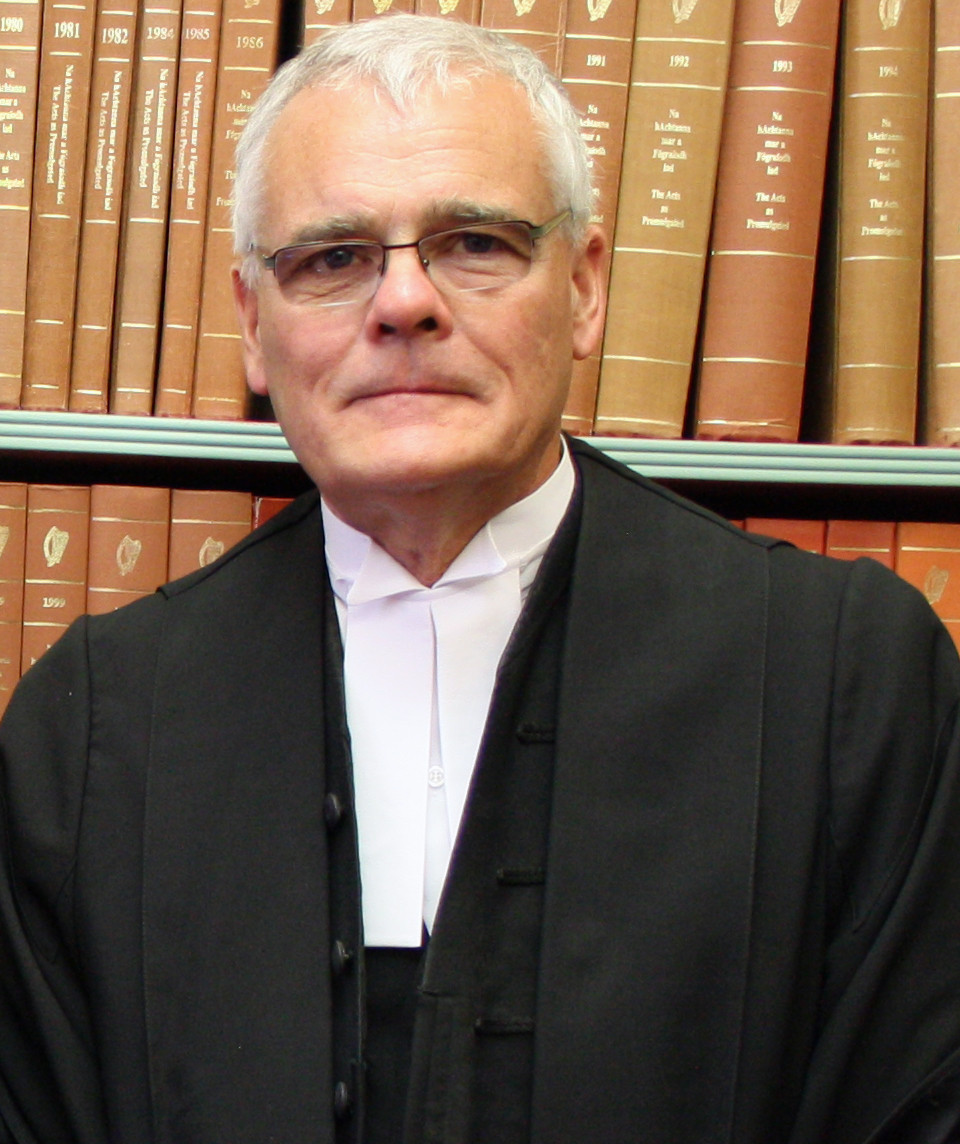Court of Appeal: Appeal concerning inquest ‘natural causes’ verdict dismissed

Mr Justice Charles Meenan
The Court of Appeal has dismissed the appeal of the parents of a newborn boy who died following a difficult birth.

About this case:
- Citation:[2023] IECA 248
- Judgment:
- Court:Court of Appeal
- Judge:Mr Justice Charles Meenan
Delivering judgment for the Court of Appeal, Mr Justice Charles Meenan observed that despite the appellants’ contention that the verdict of natural causes was incorrect, “no medical or midwifery evidence was called by the appellants to support these propositions”.
Background
On 13 July 2018, the first named appellant attended University Hospital Waterford for the purpose of giving birth to her son. Approximately 34 hours after admission, the first appellant suffered a uterine rupture.
An emergency caesarean section was undertaken, and her baby was born alive but in poor condition. After life-saving action, the baby was moved to Cork University Hospital and placed on life support, however he died from brain injury suffered in the course of delivery.
The appellants believe that the pregnancy was high-risk as her previous child was born by caesarean section, and the uterine rupture was caused or contributed to by the use of oxytocin.
The office of the respondent was notified of the death and directed that the death wanted coronial investigation.
The inquest commenced before a jury on 10 September 2020. At the conclusion of the evidence, counsel for the appellants addressed the jury, following which the respondent charged the jury, stating that four possible verdicts were open to them.
The jury’s verdict was death by natural causes with a recommendation that the hospital take a look at their current policies in respect of the use of oxytocin.
The appellants were aggrieved by the verdict, maintaining that the baby died due to the use of oxytocin which caused a uterine rupture when it was too late to have an organised Caesarean section that would have saved his life.
The appellants applied for judicial review and were granted leave to seek various reliefs, including orders quashing the verdict of the coroner, a declaration that the coroner failed to charge the jury appropriately, and a declaration that the medical care during labour and use of oxytocin were material circumstances relevant to the death of the child.
The High Court
The respondent’s affidavit detailed the pre-inquest hearings and the manner in which the inquest was conducted. The appellants belatedly contended that the jury were under time constraints to give their verdict, to which the respondent replied that at 4pm, the courthouse staff informed him that the building would close at 5pm. The respondent informed all present, but the jury were not told that they had to decide their verdict before 5pm.
Following a hearing in the High Court, the trial judge dismissed the application for judicial review, finding that there was “ample relevant evidence before the coroner upon which he could base his verdict and his verdict with based squarely on that evidence… It is not for the court to assist that evidence… that of the role of the coroner.”
Finding that the issue of insufficient time was not referred to in the grounding affidavit of the appellants or their solicitor, but merely vaguely referred to in a subsequent affidavit, the trial judge found that it was appropriate to prefer the evidence of the coroner.
Concerning the charge to the jury, the trial judge found that that was no challenge made by the appellants to the coroner’s charge at the time of directing the jury, and that the coroner gave adequate direction and summing up on the verdicts available.
The Court of Appeal
The appellants contended that the trial judge erred in finding that there was sufficient evidence to support a verdict of “natural causes”, that there was insufficient evidence to support an alternative verdict, that the coroner’s charge was sufficient, that the jury had sufficient time to consider their verdict, and that the judge gave little or no weight to the jury being given a record of verdict form pre-printed with the cause of death.
Mr Justice Meenan considered the nature and limitations of inquests pursuant to the provisions of The Coroners Act 1962 (as amended), noting that ss.30 and 31 provide that questions of civil or criminal liability shall not be considered or investigated at an inquest, and that neither the verdict nor any findings made shall censure or exonerate any person.
The court observed that the effect of those provisions had been considered by the Supreme Court on several occasions and in particular in Eastern Health Board v Farrell [2001] 4 IR 627, in which it was stated that “it should not be forgotten that an inquest is a fact-finding exercise and not a method of apportioning guilt”.
Considering that the Supreme Court in Farrell was considering s.30 of the 1962 Act prior to its amendment, Mr Justice Meenan confirmed that “the amendment copper-fastened the nature of an inquest”.
The appellants submitted that the pre-printed form only provided for a proximate cause of death, and did set out the circumstances of the death. Noting that the use of the form was not referred to in the statement of grounds and that this alone was sufficient to reject that ground of appeal, the court considered that nonetheless, the form was provided for in the Coroners Act 1962 (Forms) Regulations 1962 (S.I. No. 94 of 1962) and it referred to the events that took place whilst the baby was in utero.
Turning to the submission that the evidence did not support the verdict of natural causes, the Court of Appeal noted the extensive medical evidence proffered on behalf of the respondent. Highlighting that whilst the appellants disagreed as to what caused the uterine rupture, Mr Justice Meenan observed that the appellants offered no medical or midwifery evidence to support their propositions, concluding that the trial judge’s decision was correct.
Addressing the challenge to the coroner’s charge to the jury, the court agreed with the emphasis of the trial judge on the fact that at the inquest, counsel for the appellants did not seek to challenge the direction given and had addressed the jury for 20 minutes prior. The court stressed that the appellant’s suggested wording would have been impermissible as it questioned the care provided by the medical staff.
Considering that the appellants sought to rely on s.16A of the 1962 Act, Mr Justice Meenan stated that s.16A has nothing to do with what verdicts may be given by a jury as it deals with “reportable deaths” and “does not abridge or limit the effects” of ss.30 and 31.
As to the allegation concerning time constraints, the court noted that no clarification was sought by the appellants’ counsel when the coroner informed the hearing that the courthouse was due to close.
Finally, considering a further allegation that the coroner’s notes were not exhibited to his affidavit, the court noted that if the appellants believed the notes to be relevant or necessary, they should have sought discovery prior to the High Court hearing.
Conclusion
Dismissing the appeal, the court provisionally granted the respondents their costs.
Cummins & Anor v The Coroner for Cork City [2023] IECA 248










